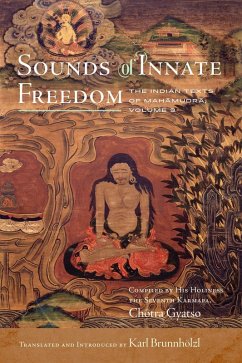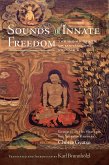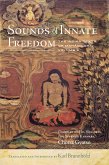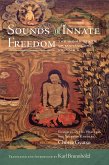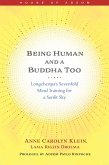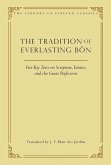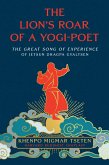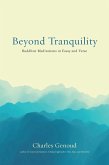The third volume in a historic six-volume series containing many of the first English translations of the classic mahamudra literature compiled by the Seventh Karmapa. Sounds of Innate Freedom: The Indian Texts of Mahamudra are historic volumes containing many of the first English translations of the classic mahamudra literature. The texts and songs in these volumes constitute the large compendium called The Indian Texts of the Mahamudra of Definitive Meaning, compiled by the Seventh Karmapa Chötra Gyatso (1456-1539). Translated, introduced, and annotated by Karl Brunnhölzl, acclaimed senior teacher at the Nalandabodhi community of Dzogchen Ponlop Rinpoche, the collection offers a brilliant window into the richness of the vast ocean of Indian mahamudra texts cherished in all Tibetan lineages, particularly in the Kagyu tradition, giving us a clear view of the sources of one of the world's great contemplative traditions. This third volume contains twenty-four texts, the bulk of which are dohas by Saraha and commentaries on them, as well as works by other renowned Indian Buddhist mahasiddhas such as Naropa, Krsna, and Sakyasribhadra. The extensive commentaries brilliantly unravel enigmas and bring clarity to the songs they comment on as well as to many other songs of realization in the series. These expressive songs of the inexpressible offer readers a feast of profound and powerful pith instructions uttered by numerous male and female mahasiddhas, yogis, and dakinis, often in the context of ritual ganacakras and initially kept in their secret treasury. Displaying a vast range of themes, styles, and metaphors, they all point to the single true nature of the mind-mahamudra-in inspiring ways and from different angles, using a dazzling array of skillful means to penetrate the sole vital point of buddhahood being found nowhere but within our own mind. Reading and singing these songs of mystical wonder, bliss, and ecstatic freedom and contemplating their meaning will open doors to spiritual experience for us today just as it has for countless practitioners in the past.
Dieser Download kann aus rechtlichen Gründen nur mit Rechnungsadresse in A, B, BG, CZ, D, DK, EW, E, FIN, F, GR, HR, H, I, LT, L, LR, NL, PL, P, R, S, SLO, SK ausgeliefert werden.
Hinweis: Dieser Artikel kann nur an eine deutsche Lieferadresse ausgeliefert werden.

